SUMMARY
This is AI generated summarization, which may have errors. For context, always refer to the full article.
![[OPINION] Citizens vs bosses in the time of COVID-19](https://www.rappler.com/tachyon/2021/02/imho-vaccine-threat-1280.jpg)
On January 11, the Philippines’ COVID-19 death toll climbed to 9,416 with 11 new fatalities. That same day, National COVID-19 Task Force chief Carlito Galvez, Jr assured the Senate that the country’s situation was about to improve, since the initial doses of the vaccine were set to arrive in 5 weeks’ time, and that the national government would begin its inoculation effort by the end of February. Those who would be prioritized included health workers and indigent senior citizens in high risk areas, though Galvez added that mass immunization would begin in earnest once the “main bulk” of the precious vaccine becomes available by the second half of the year.
And while he was testifying at the Senate, Malacañang announced that they had already secured 25 million doses of China’s Sinovac vaccine, with an initial 50,000 doses arriving in February. The Palace further admitted that the Chinese serum was the only vaccine that would be administered during the first 4 months of its immunization drive, since supplies from Western and Indian manufacturers were not arriving until July.
This announcement was made as the World Health Organization (WHO) admonished China for delays in the entry approval of top-level experts tasked to investigate the origins of COVID-19.
“Today we learned that Chinese officials have not yet finalized the necessary permissions for the team’s arrival in China,” WHO Director-General Tedros Adhanom Ghebreyesus told reporters during a January 5 news conference in Geneva.
Insisting that “the mission is a priority for WHO and the international team,” Tedros said that, “I am very disappointed with this news given that two members had already begun their journeys and others were not able to travel at the last minute.”
Questioning Sinovac
At around the same time, researchers from Brazil admitted that the Sinovac vaccine only had a 50.4% efficacy rate against COVID-19 infections. Though interim data from Indonesia showed the Chinese serum to be 65% effective against the dreaded disease, this was still significantly lower than the 95% efficacy rate of both Pfizer and Moderna.
This prompted some senators to question the government’s deal with Sinovac and urge for its immediate cancellation.
Senator Ping Lacson, for example, wondered, “Why would I choose a brand with only 50% efficacy and doesn’t even have application for Emergency Use Authorization (EUA)?”
Senator Juan Miguel Zubiri was more forthright, describing Sinovac’s 50% efficacy rate as “a joke” and “totally unacceptable,” adding that procuring the said serum would be “a total waste of our funds and resources.” He instead appealed to the executive branch to “consider first the safety of the public” and “look at the effectiveness of the vaccine rather than political or geopolitical reasons.”
Even the administration’s most reliable lickspittle in the Senate, Senator Bong Go, was alarmed, not because of any possible health concern, but because of the public’s growing apprehension of the Sinovac serum. Speaking before his colleagues last January 15, Go said, “Napapansin ko po when I asked the people around the country, gusto po nilang magpa-vaccine. Pero po ang tanong, kung sino po ang mauuna. Ayaw po nila na sila mauna. Nagtuturuan po kung sino ang mauuna.” (The people I asked around the country do want to be vaccinated. But the question is, who will take the first shot? They are not willing to go first.)
Uncertain price
President Rodrigo Duterte, however, quickly came to Sinovac’s defense, stating that, “Hindi nagkulang ang Chinese. Hindi sila nagkulang sa utak. Bright itong mga Instik at they would not venture kung hindi sapat, it is not safe, sure, and secure.” (The Chinese did not fail at producing the vaccine. They are not stupid. The Chinese are bright and they would not venture into vaccine production if it wasn’t safe, sure, and secure.)
Galvez, unsurprisingly, followed the lead of his boss, insisting that, “Kaya po namin pinili ang Sinovac, dahil medyo mura po ito.” (We chose Sinovac because it’s slightly affordable.)
But data from the Department of Health show the complete falsity of Galvez’s claim, since the cheapest vaccine is not Sinovac, but Novavax from India, which is priced at P366 per two doses.
While Sinovac’s price tag of P3,629.50 is slightly lower than the Moderna vaccine, which ranges from P3,904 to P4,504, it still more expensive than Pfizer’s, which is pegged at P2,379.
To bolster public confidence, Roque belatedly announced on January 17 that contrary to earlier data from DOH, the Sinovac vaccine would be sold at P650 per dose or P1,300 for two doses. This figure, however, is still higher compared to the price in neighboring Thailand, where the same serum is to be sold at P500 per dose. Unfortunately, the government has failed to clarify on this issue because of its dogged refusal to reveal the agreed amount for the Sinovac serum, citing its non-disclosure agreement with the Chinese pharmaceutical company.
Lacson was not pleased, claiming that the entire affair smacked of corruption. In a tweet, the Senator said that he was reminded “of an old story about how corruption is committed in 3 Southeast Asian countries — UNDER the table, ON the table, and INCLUDING the table.”
Calling out corruption
As expected, the allegations did not sit well with the President, who slammed his critics in a pre-recorded briefing aired on January 25. Duterte said, “‘Yong gustong maniwala doon sa mga oposisyon, pati ‘yong mga nagpo-porma, eh ‘di doon kayo. (Kung) Maniwala kayo sa amin, eh ‘di dito kayo. But hindi ‘yan (corruption allegations) totoo.” (If you want to believe the opposition and those that are posturing, then go with them. And if you believe us, then stay with us. But the corruption allegations are not true.)
The President’s tirade, however, is no guarantee that the Sinovac deal is truly above board, especially since the company had been previously involved in several bribery scandals. In 2017, for example, the deputy director of China’s Food and Drug Administration, Yin Hongzhang, was given a 10-year prison sentence after receiving $83,000 in bribes from Sinovac’s founder and CEO, Yin Weidong. According to court documents, the grease money was meant to facilitate the approval of the vaccines that the Beijing-based company had developed against SARS and avian flu a decade earlier.
But apart from Sinovac, another cause for concern are the corruption allegations that now hound several government officials, including some of Duterte’s top appointees. Just last September, Senator Risa Hontiveros called out the Department of Budget and Management (DBM) for allegedly purchasing millions of personal protective equipment (PPEs) at overpriced rates. According to the solon, standard PPEs typically cost between P1,200 to P1,500 per unit, but the equipment that DBM bought were between P1,700 to P2,000 per unit. This meant that the procurements were probably overpriced by at least P200 per unit or P1 billion total, prompting the opposition senator to call for a thorough investigation.
There was also an allegation from whistleblower Thorrsson Montes Keith that several top officials of the Philippine Health Insurance Corporation (Philhealth), including its President and CEO Ricardo Morales, had stolen P15 billion in public funds using various fraudulent schemes. Morales denied the allegation, though he eventually resigned from his post, citing his worsening health situation.
The government’s reputation has also been undermined by continuing delays in the release of health workers’ hazard pay, prompting several hospital employees to hold a protest in front of the Department of Health (DOH) central office last December 7.
Bossism
Because of the widespread concern over Chinese-made vaccines, Cainta Mayor Keith Neito backed out of a deal with an unnamed supplier from China after it was thoroughly rejected by his constituents. At the same time, several other local governments have also begun acquiring vaccines on their own. To date, over 30 provinces and cities have already set aside funds to buy vaccines from AstraZeneca, which cost P610 per two doses.
But rather than address the public’s apprehension, the Duterte administration is instead telling its people that they have no choice but to simply accept whatever vaccine is given to them. Speaking to reporters on January 11, Roque stated that, “Totoo po, meron tayong lahat na karapatan para sa mabuting kalusugan, pero hindi naman po pwede na pihikan dahil napakaraming Pilipino na dapat turukan.” (It is true that we all have the right to good health, but we cannot afford to be picky because there are so many Filipinos who need to be vaccinated.)
In a thinly veiled threat, Roque even announced that health workers and senior citizens who refuse the vaccine allotted for them will lose their priority status.
“Wala pong pilian, kasi walang pilitan. Pero magsa-sign ka ng waiver na hindi ka nagpaturok,” he said. (There is no choosing of vaccines, because no one will be forced to get vaccinated. But you’ll have to sign a waiver if you decide not to.)
This response unveils the collective mindset of the country’s leadership — that they do not view their constituents as citizens with full rights and entitlements, but as mere underlings who should regard their superiors with servility and obedience.
Such an attitude is rooted in the culture of bossism, or the “interlocking, multi-tiered directorate of bosses who use their control over the state apparatus to exploit the archipelago’s human and natural resources.” Coined by American political scientist John Sidel, bossism can be understood as “a sophisticated form of brigandage” wherein power is won and maintained “through predatory and heavily coercive forms of primitive accumulation and monopoly rent-capitalism.” As a concept, bossism therefore allows us to see politicians, as Joel Rocamora bluntly remarks, as “plain and simple crooks and not benign patrons.”
Citizen action
Unfortunately, this mindset will not be overcome unless citizens see themselves as such, and begin demanding transparency and accountability from their own government. This also means asserting their right to quality services that should be available at the soonest possible time. Along with allies in government that are starting to sound the whistle, citizens can fight the bosses’ perpetuation of bad governance in the country’s pandemic response.
This is especially true in the midst of the coronavirus pandemic, which can only be addressed by providing all citizens with safe, effective, and affordable vaccines. In fact, in a recent study by a team of researchers from the University of Texas at Austin and The Santa Fe Institute, New Mexico, it was established that a herd immunity threshold of 60% to 80% was needed to decisively overcome the virus. It is for this reason that Filipinos must demand a thorough accounting of COVID-19 funds and ensure that each centavo is spent wisely and appropriately.
Recently, the Commission on Audit (COA) said it will be auditing the said funds, but its final report has yet to be released. We are hoping that the Commission will not find any adverse findings in its inquiry. But be that as it may, the public must not relieve its pressure on its leaders, so it can continually remind the government that the real bosses in this country are not those in power, but the people who elected them. – Rappler.com
Francis Isaac holds a master’s degree in International Studies from De La Salle University. He is the knowledge and research officer of G-Watch.
Joy Aceron is the convenor-director of G-Watch and a research fellow-adviser at Accountability Research Center.
Add a comment
How does this make you feel?
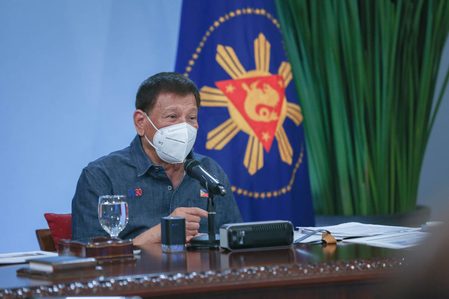
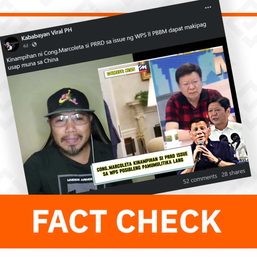


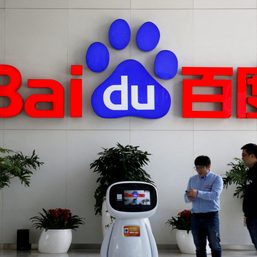

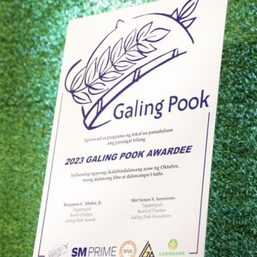
![[Newsstand] The Marcoses’ three-body problem](https://www.rappler.com/tachyon/2024/04/tl-marcoses-3-body-problem.jpg?resize=257%2C257&crop=451px%2C0px%2C1080px%2C1080px)
![[Edgewise] Preface to ‘A Fortunate Country,’ a social idealist novel](https://www.rappler.com/tachyon/2024/02/a-fortunate-country-february-8-2024.jpg?resize=257%2C257&crop_strategy=attention)
![[New School] When barangays lose their purpose](https://www.rappler.com/tachyon/2024/02/new-school-barangay.jpg?resize=257%2C257&crop=414px%2C0px%2C1080px%2C1080px)
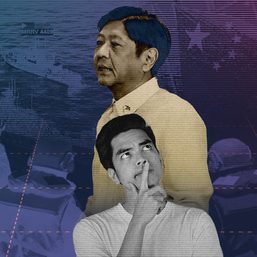


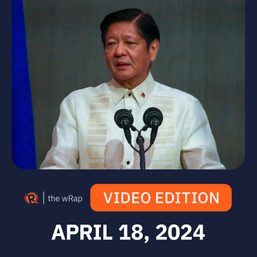
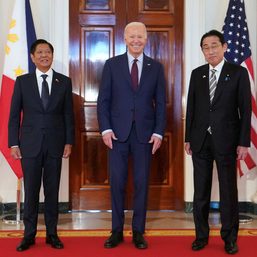

There are no comments yet. Add your comment to start the conversation.